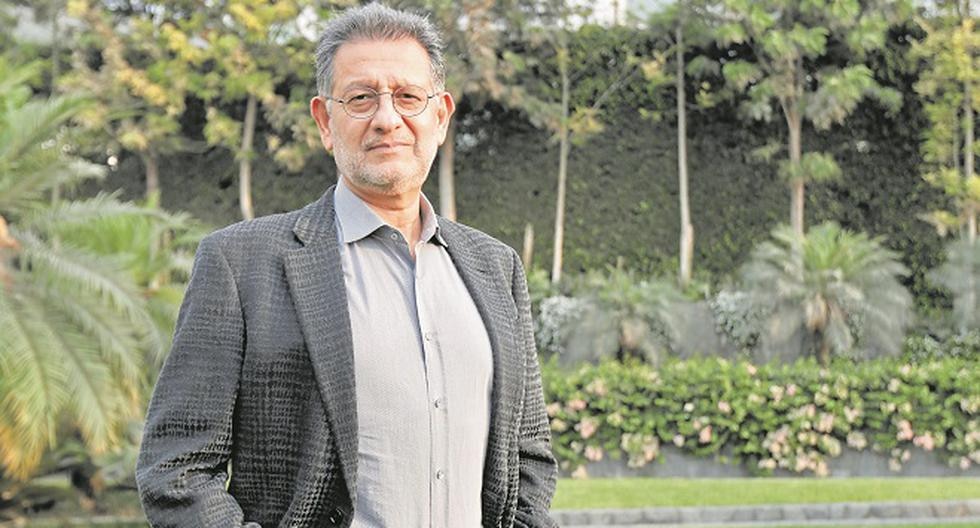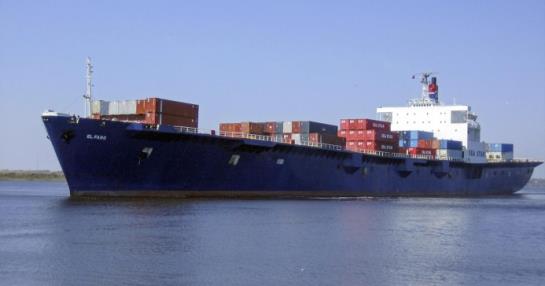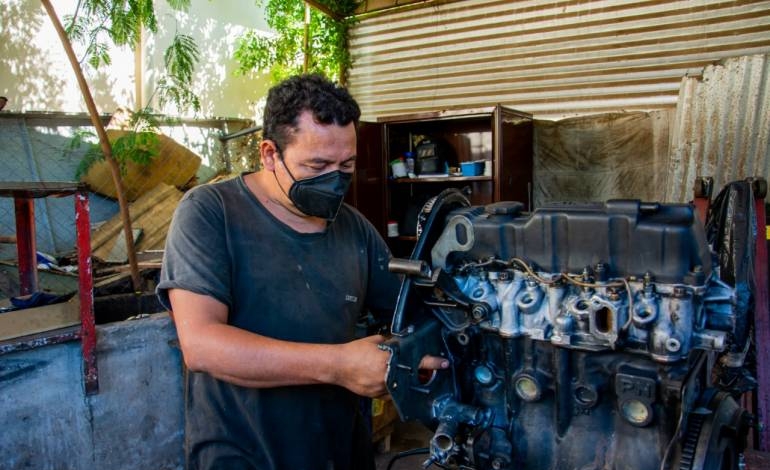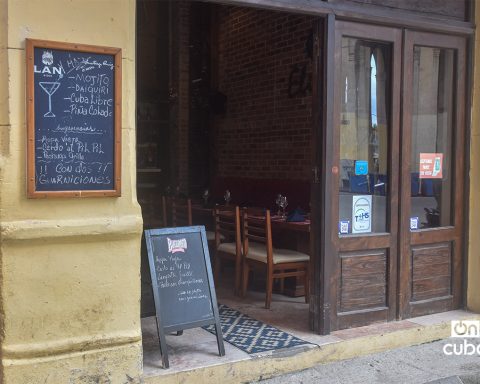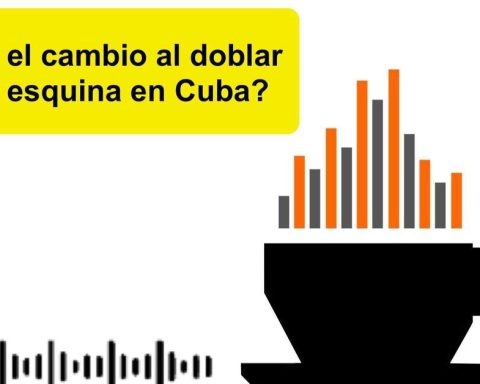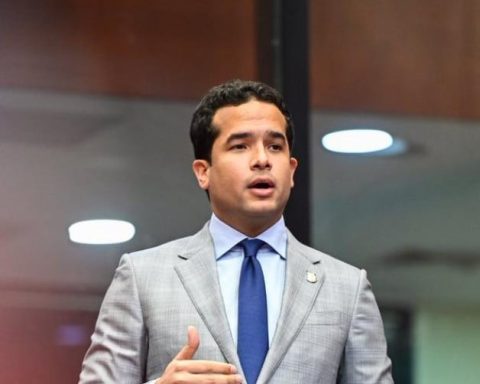jorge medina speaks with conviction about this change in business vision that he promotes from Conscious Capitalism Peru, a movement that seeks to get businessmen, as citizens, to become directly and participatively involved in society’s problems and the search for solutions. In this context, he continues to take a critical look at the current political context.
What is conscious capitalism?
The capitalist system is the best system that human beings have developed for their progress because it operates on the basis of free enterprise, the exchange of wills. The problem is that he lost his way in the last four or five decades because he adopted a short-term view. I’m not saying that all companies are like this, but the system began to malfunction; employees, customers, suppliers, the environment itself and communities are considered not as ends in themselves but as instruments. That is why there is so much criticism and rejection of the capitalist system; It is thought that businessmen only seek our own interest and that does not have to be the case.
SIGHT: Raúl Ferrero Costa: “If we continue like this, the country is on the way to the abyss” | INTERVIEW
How can the needs of the business community be reconciled with those of the population? You organized work groups with more than a hundred leaders from different fields to analyze the issue…
There were about 10 tables, 110 leaders from all sectors participated and each table had the same theme: how to improve Peruvian business leadership in times of social, political and economic crisis? Private enterprise is part of society and businessmen, rather than businessmen, are citizens, and that is where in Peru we have been failing because we are not directly and participatively involved in those things that concern society, such as, for example, regionalization, how to improve politics, health, education. Now, it can be reconciled, and there are countries where the participation of the business community through thought teams or think tanks is showing progress; they are much more efficient in terms of public policy proposals to improve problems of inequality and others that afflict society; that can also be done in Peru.
There is a rethinking of the business vision regarding society and that was evidenced in the pandemic, but what else can be done?
When cases such as the pandemic have occurred, or before the natural disasters on the north coast, the business community has had an important positive participation. In fact, it was possible for the first vaccines to arrive in the pandemic because the Peruvian business community helped. What would we have to do? First, recognize as businessmen that we are part of society and that we will never be sustainable as a private company in an environment of fragile democracy, weak institutions, demagoguery and populism like the one we live in today. Second, to recognize that the Peruvian model of the last 20 or 25 years has been basically one of economic growth, not development, because, if so, it would have included social, human, and environmental development. Third, corporate leadership needs to act courageously to overcome the fear that if we engage in public, our brands and reputation may be damaged; it is the opposite. And one thing that we must also keep in mind is that the concept of democracy must be better understood by everyone, but also by the private sector because we cannot ignore that democracy is a system designed by humanity to properly manage power in a country and for the benefit of the whole society. Look what we have today with President Castillo, who is probably the most demagogic and populist government Peru has ever had. Under the excuse of “I am a provincial teacher, a patrolman who comes from the countryside and who works for the people and for the people”, he is destroying the country, what little we have of institutions…
:quality(75)/cloudfront-us-east-1.images.arcpublishing.com/elcomercio/HDEV3VOSDBD3JKILLE5VWYU4J4.jpg)
And in the midst of this institutional crisis, how do you see the lack of public trust in the business sector paid by businessmen involved in corruption cases such as the Construction Club, Lava Jato, etc.?
Indeed, there is a general distrust not only towards businessmen, but also in institutions. It doesn’t have to be that way, and one way that many companies have found is for their CEOs and presidents to take a stand on those things that affect society. In a developing economy like ours, private enterprise is essential for the country’s progress, and that is why it is necessary to engage in politics, I am not saying to create a political party and engage in partisan politics, but to participate with the resources we have because we have influences, power, not only economic, but of good human, technological and innovation talents.
Is that distance from the business sector changing with respect to citizen problems or political and economic situations that the country is experiencing?
It’s changing something, yes, but not as fast as it should. Three or four years ago, we businessmen did not want to talk about corruption, we preferred to talk about informality, about the State that does not work, but, frankly speaking, many people knew, especially those who are in certain industries, that Odebrecht and other construction companies did not act well; Perhaps it was not known to the extent of the penetration that they had with parallel accounting or purchase of wills, but it was already being talked about and I think that there we should have been much more forceful.
Bloomberg has recognized the Peruvian economy as the strongest in the region, displacing even Chile, and President Castillo attributes this to his government. What is his opinion?
That statement is populist and demagogic, it is false. Chile is in second place because it has a government that has made changes and so it is following a model that increases country risk, but if a Constituent Assembly were to take place in Peru and we went down a path that at the end of the day would lead us to a social and human disaster, as we have seen in other countries like Venezuela, Nicaragua, etc., then you will see how our position changes. What has happened does not depend on the government of President Castillo, of course not; that is a demagogic and populist use. Due to its incapacity and largely due to an ideological burden, this government is doing a lot of damage to Peru, and for this reason, I insist, we businessmen have to do business activism, participate, give suggestions, cause positive tension together with the citizens. We Peruvians who want the best for the country have to stop watching the game from the stands, go down to the field to play and, if that generates some cost, we have to pay it because it is much more comfortable and cheaper than staying as spectators because more ahead it will be worse. In addition, there is no possibility of making markets, companies and investment sustainable in a toxic, dysfunctional environment, such as the one that prevails in Peru today.
From your business point of view, how do you see the situation in the country and how do we convince businessmen to invest when we have the constant threat of a Constituent Assembly and changes in the rules of the game?
There are two paths here: either President Castillo appoints a capable, democratic, convening Prime Minister and they form a technical Council of Ministers, capable and without the accusations that most of the current ministers have, and President Castillo reaches the end of his government, or it doesn’t last long. I don’t even tell him why they vacate it; the very people that the president refers to every time he speaks demagogically is going to kick them out because the economy is going to continue to deteriorate, health conditions are not going to see progress, and people are going to resent it and say ‘one more than He cheats on us’ and they’re going to take him out.
And is Congress up to the circumstances or is it also looking out for its partisan, personal and perhaps even business interests?
Congress has a great responsibility and is not acting as the representatives that they should be because they have previously made extreme decisions for minor reasons. Imagine former President Vizcarra running a government like the one President Castillo is running today; he would have been much faster. In the ideal world, what should happen is that President Castillo resigns, but I have the impression that he will not measure up, he is a great demagogue, a populist, he is not transparent and he shamelessly lies to Peru, and that we know. But Congress also has its responsibility. I do not see that they are our representatives or that they are acting at the height of the circumstances and, yes, it may be that they are afraid that, of course, if there are elections, there are for everyone, the famous “everyone leaves”, and the problem is how power is being exercised. In Peru there is no true democracy because it exists when the State is capable of giving its population the minimum conditions for a dignified life, equal opportunities for development, to live in peace, that does not exist in Peru. We have an electoral and imperfect democracy, and we have a lot of illicit money entering politics, illegal logging, drug trafficking, illegal mining; That is why it is important that the democratic forces lay down their interests and participate with think tanks. We need to lay down personal interests thinking about what is best for the country and there the private company, the leaders –I am not talking about the unions but about the CEOs, the company presidents themselves– have to participate as citizens; it is an opportunity, we have never had a better scenario for there to be a change in that sense.
KEEP IN MIND
- Jorge Medina Méndez is co-founder and president of Conscious Capitalism Peru. He is an accountant from the Universidad Nacional Mayor de San Marcos. He was director of Confiep and IPAE, president of Proética and president and CEO of Ernst & Young Peru.
- “There are more and more companies aware that they want to improve society, not through philanthropy or social responsibility, which are always welcome, but through businesses made to solve environmental, social and human needs in a profitable way and without causing negative externalities. ”, he maintains.
THIS VIDEO MAY INTEREST YOU
:quality(75)/cdn.jwplayer.com/v2/media/8VTvIVkM/poster.jpg)
